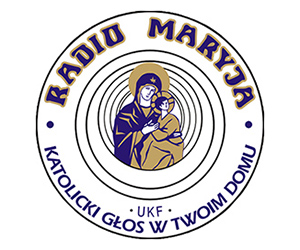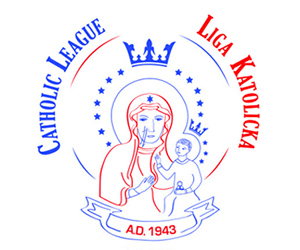
Fr Mariusz Świder – Pontifical Gregorian University, Rome /
«The statement is trustworthy: If anyone aspires to the office of overseer
(bishop), he desires a noble task. Therefore, an overseer must be above reproach, the
husband of one wife, sober-minded, self-controlled, respectable, hospitable, able to
teach, not a drunkard, not violent but gentle, not quarrelsome, not a lover of money.
He must manage his own household well, with all dignity keeping his children
submissive, for if someone does not know how to manage his own household, how
will he care for God’s church? He must not be a recent convert, or he may become
puffed up with conceit and fall into the condemnation of the devil. Moreover, he
must be well thought of by outsiders, so that he may not fall into disgrace, into a
snare of the devil» – writes saint Paul1 to his friend and disciple, bishop Timothy,
speaking about qualification of leaders of the local Church. Just from these
describing qualifications the person of bishop is seen as a responsible father of the
local Church, real pater familias of the community of believers.
In the view of the New Testament, a bishop is describing as a person who is a
teaching leader among a local group of Christians. The Greek term episkopos has
also been translated as «episcopal», «elder», «overseer», or «pastor». All refer to the
same office and are therefore synonyms.
11 Timothy 3, 1-7. About very similar qualification writes saint Paul in the Letter to Titus (1, 5-9):
«For this reason I left you in Crete, that you would set in order what remains and appoint elders in
every city as I directed you, namely, if any man is above reproach, the husband of one wife, having
children who believe, not accused of dissipation or rebellion. For the overseer must be above
reproach as God’s steward, not self-willed, not quick-tempered, not addicted to wine, not
pugnacious, not fond of sordid gain, but hospitable, loving what is good, sensible, just, devout,
self-controlled, holding fast the faithful word which is in accordance with the teaching, so that he
will be able both to exhort in sound doctrine and to refute those who contradict».
Almost identical view presents the Code of Canon Law from 1983 in which in
the section about the Particular Churches and Their Groupings dedicates whole
chapter to bishop’s role in the Authority of the Church speaking about the bishops in
general, the diocesan bishops and about the coadjutor and auxiliary bishops2.
According the Code, «by divine institution, Bishops succeed the Apostles through
the Holy Spirit who is given to them. They are constituted Pastors in the Church, to
be the teachers of doctrine, the priests of sacred worship and the ministers of
governance» (can. 375). I would like to suggest that exactly on these three levels
is realized the role of the bishop as a father of community.
But, a few years earlier, before the promulgation of the Code of Canon Law in
1983, the Fathers the Second Vatican Council, which took place in years 1962-65,
dedicated a lot of place to the bishop’s role in the modern world. It was the twentyfirst
ecumenical council of the Catholic Church and the second to be held at St.
Peter’s Basilica in the Vatican. The council, through the Holy See, formally opened
under the pontificate of Pope John XXIII on 11 October 1962. But John XXIII did
not live to see the Vatican Council to completion. He died on 3 June 1963. When the
next pope – Paul VI was elected on 21 June 1963, and on 22 June he announced that
Vatican II would continue. The second session began on September 29. When he
opened that session, Paul said that «the First Vatican Council had defined the role of
the pope. Now it was time to define the role of bishops and others among the People
of God».
Indeed, in all sixteen conciliar documents the term «bishops» occurs almost
300 times (regarding the diocesan, auxiliary and coadjutor bishops)3. The role of the
bishops was brought into renewed prominence, especially when seen collectively, as
a college that has succeeded to that of the apostles in teaching and governing the
Church.
The main theological discussion on the nature of the episcopacy takes place in
chapter three of the Dogmatic Constitution on the Church Lumen Gentium, which is
considered the Council’s most important document since most of the others
proceeded from it. The document says that bishops do not act as vicars or
2 Cf. CCL, can. 375-411.
3 111 times in Christus Dominus – Decree Concerning the Pastoral Office of Bishops in the Church;
66 times in Lumen Gentium – Dogmatic Constitution On the Church; 37 times in Presbyterorum
Ordinis – Decree On the Ministry and Life of Priests; 23 times in Sacrosanctum concilium –
Constitution on the Sacred Liturgy and 57 times in other documents.
representatives of the pope, but as representatives of Christ in their dioceses. Lumen
Gentium in its 27 article says that «bishops, as vicars and ambassadors of Christ,
govern the particular churches entrusted to them by their counsel, exhortations,
example, and even by their authority and sacred power». However, they act
collegially only when they do so together with the successor of Peter, the pope, which
means that collegiality does not diminish the primacy of the pope: «Bishops,
therefore, with their helpers, the priests and deacons, have taken up the service of the
community, presiding in place of God over the flock, whose shepherds they are, as
teachers for doctrine, priests for sacred worship, and ministers for governing. And
just as the office granted individually to Peter, the first among the apostles, is
permanent and is to be transmitted to his successors, so also the apostles’ office of
nurturing the Church is permanent, and is to be exercised without interruption by the
sacred order of bishops. Therefore, the Sacred Council teaches that bishops by divine
institution have succeeded to the place of the apostles, as shepherds of the Church,
and he who hears them, hears Christ, and he who rejects them, rejects Christ and Him
who sent Christ» (LG 20).
The sixth document issued by the Second Vatican Council – the first coming
out of its 1965 sessions4 – was the Decree Concerning the Pastoral Office of Bishops
in the Church Christus Dominus promulgated on October 28th. Since the most
highly-developed section of the Dogmatic Constitution on the Church dealt with the
episcopate, Christus Dominus is based on the same dogmatic principles, enabling us
to move directly into its primarily pastoral purpose. This decree spelled out the roles
of bishops in the universal Church, in their own dioceses and in their cooperation
with one another. The Decree Concerning the Pastoral Office of Bishops in the
Church is a document intended to take that earlier constitution and draw out practical
implications for how bishops carry out their ministry. In opinion of several scholars,
many articles of Christus Dominus, as was just mentioned, were incorporated into
the 1983 Code of Canon Law. In fact, probably no Vatican II document was
incorporated into the new Code to the same extent as was Christus Dominus.
The decree Christus Dominus is divided into three chapters. The first is on the
role of bishops in the universal Church; the second on the role of bishops in their
own dioceses; the third on cooperation among bishops for the good of a number of
4 The fourth and final session of Vatican II ran from 14 September to 8 December 1965. Altogether,
the council promulgated 16 documents and the fourth session promulgated 11 of them.
churches. The first part of the decree’s second chapter could be seen as providing a
sketch of the ideal bishop means a father for his local community of the Church.
The core of this “doctrine concerning bishops” is this: «By episcopal
consecration the fullness of the sacramental Orders is conferred, that fullness of
power, namely, which both in the Church’s liturgical practice and in the language of
the Fathers of the Church is called the high priesthood, the supreme power of the
sacred ministry. But episcopal consecration, together with the office of sanctifying,
also confers the office of teaching and governing, which however, of its very nature
can be exercised only in hierarchical communion with the head and the members of
the college. For…it is clear that, by means of the imposition of hands and the words
of consecration, the grace of the Holy Spirit is so conferred, and the sacred character
so impressed, that bishops in an eminent and visible way sustain the roles of Christ
Himself as Teacher, Shepherd and High Priest, and that they act in His person» (CD
21). In other words, bishops have the fullness of orders by which they, like the Pope,
have the office of teaching, ruling and sanctifying in the Church. Bishops are, indeed,
vicars of Christ in their own dioceses, as the Pope is in the universal Church. But
unlike the Roman Pontiff, who «has full, supreme and universal power over the
Church…and is always free to exercise this power» (CD 22). Within this context, the
bishops, like the apostles and like Peter, have the power to bind and loose.
Having established the immense dignity and authority of the bishop, which
depends at one and the same time upon his possession of the fullness of sacred orders
and his unity with the entire college including its head, the Council goes on to stress
the threefold office of the bishop. In each of this activities he should play the role as
a pater familias – a responasable father of the community of the local Church
1 The prophetic (teaching) office: munus orandi
2 The priestly (sanctifying) office: munus sacrificandi
3 The kingly (governing) office: munus regendi
1. BISHOP’S MUNUS ORANDI IN HIS ROLE AS A FATHER
Every bishop carries on the mission of the Apostles by being the primary
witnesses of the risen Christ in their diocese as a father for his children. In that way
they fulfill the biblical mandate to “go into all the world and preach the gospel to all
creation” (Mark 16,15). Within the Catholic Church the bishops have a very clear
and defined role as the authentic teachers of the faith. Indeed, it is the specific
competence and responsibility of bishops to teach the faith in its entirety. The Second
Vatican Council, in its Decree on the Pastoral Office of Bishops in the Church
Christus Dominus emphasizes the importance of preaching the Gospel for the
ministry of bishops: «In exercising their duty of teaching-which is conspicuous
among the principal duties of bishops. They should announce the Gospel of Christ to
men, calling them to a faith in the power of the Spirit or confirming them in a living
faith. They should expound the whole mystery of Christ to them, namely, those truths
the ignorance of which is ignorance of Christ. (…) They should show, moreover, that
earthly goods and human institutions according to the plan of God the Creator are
also disposed for man’s salvation and therefore can contribute much to the building
up of the body of Christ. Therefore, they should teach, according to the doctrine of
the Church, the great value of these things: the human person with his freedom and
bodily life, the family and its unity and stability, the procreation and education of
children, civil society with its laws and professions, labor and leisure, the arts and
technical inventions, poverty and affluence. Finally, they should set forth the ways
by which are to be answered the most serious questions concerning the ownership,
increase, and just distribution of material goods, peace and war, and brotherly
relations among all countries. (CD 12). In that way they responsibly play an
educative role as a pater familias.
Lumen Gentium repeats this obvious bishop’s task: «Among the principal
duties of bishops the preaching of the Gospel occupies an eminent place.(39*) For
bishops are preachers of the faith, who lead new disciples to Christ, and they are
authentic teachers, that is, teachers endowed with the authority of Christ, who preach
to the people committed to them the faith they must believe and put into practice,
and by the light of the Holy Spirit illustrate that faith» (LG 25).
2. BISHOP’S MUNUS SACRIFICANDI IN HIS ROLE AS A FATHER
By the proclamation of the truth of Jesus Christ the Bishop is leading the
community as its father towards the thankful and loving worship of God. «A bishop,
marked with the fullness of the sacrament of Orders is ‘the steward of the grace of
the supreme priesthood’, especially in the Eucharist, which he offers or causes to be
offered, and by which the Church continually lives and grows» (LG 26). In that way
he is one ho gives life (eternal) for his flock.
Any bishop is a minister of grace and by celebrating the sacraments in the
community he fulfills the office of sanctification, making us one with God. This is
done primarily in the offering of the Eucharistic Sacrifice, the Mass, where we enter
into true communion through, with and in Christ our Lord. Because of this one of the
tasks of the Bishop is to make sure that the Mass is celebrated, properly and regularly,
throughout the diocese. Through the Eucharist the Church becomes what we
consume, the Body of Christ. Bishop’s are our primary sacramental ministers.
Through the faithful celebration of this and all other sacraments the Bishop is
assuring that all in the diocese have a transforming encounter with Christ that will
strengthen us for the many responsibilities at hand. This path of sanctification, first
lived then shared by each bishop, leads the community of faith to greater love and
service in Christ. And lastly, by the example of his way of life he must be an influence
for good to those over whom they preside, refraining from all evil and, as far as they
are able with God’s help, exchanging evil for good, so that together with the flock
committed to their care they may arrive at eternal life (cfr. LG 26).
3. BISHOP’S MUNUS REGENDI IN HIS ROLE AS A FATHER
«Bishops, as vicars and ambassadors of Christ, govern the particular churches
entrusted to them by their counsel, exhortations, example, and even by their authority
and sacred power, which indeed they use only for the edification of their flock in
truth and holiness, remembering that he who is greater should become as the lesser
and he who is the chief become as the servant» – in this way Lumen Gentium speaks
about the governing office of the bishop (LG 27). Bishops, specifically the ones
which are in charge of a diocese, are given authority which is to be utilized for the
edification or building up of the local Church. Authority is given to them not for the
purpose destruction but for construction of the community of faith. Authority and the
power that comes with it is not meant to go to their heads but to be a tool that will
guide them to greater and more humble and loving service. In the governing of their
diocese they are to become a reflection of pater familias especially of Christ the
servant.
CONCLUSION
The figure of bishop as a father for his community means the ideal bishop
would be one who devotes himself, not only to those who already follow Christ, but
also «wholeheartedly to those who have strayed in any way from the path of truth or
who have no knowledge of the Gospel of Christ and of his saving mercy (CD 11).
According the teaching of the Second Vatican Council the bishop must strive
to show everyone that worldly things are ordered to the plan of the Creator for the
salvation of humanity. He must also be an advocate for the human person, human
freedom and human life. He should be a witness to the value the Church puts on the
family – its stability, procreation and the education of children. He ought to advocate
for social justice and world peace. The bishop must present Christ’s teaching in a
manner suited to the needs of the times, especially evangelizing the poor and the
weak. He must initiate and promote dialogue with human society in a spirit of
humility and love. The ideal bishop should be one with his people, knowing their
concerns and promoting their holiness. He must be «an example of sanctity in
charity, humility and simplicity of life» (CD 15), exactly as a father for his children.







